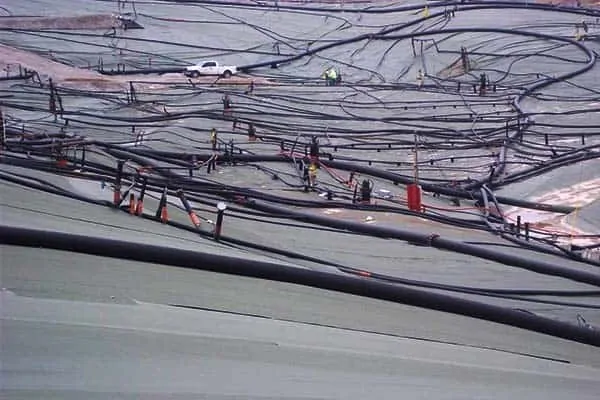


Landfill operators have known about elevated temperature conditions in landfills for nearly a decade. Some operators have already incurred numerous expenses to control adverse environmental and operational issues at these landfills, and some operators have set aside large amounts of money in their books to address future liabilities associated with such landfills. Due to the complexities of controlling elevated temperature conditions and the compliance issues arising from such conditions, it can force operators to temporarily, or permanently close their landfills.
Can design address elevated temperature conditions?
The operators of larger landfills have been monitoring and analyzing data to identify triggering factors, while others continue controlling the environmental impacts. Environmental Research & Education Foundation (EREF) initiated several research projects to identify the triggering factors with the excellent scientific work of highly qualified researchers. These are on-going projects.
In the meanwhile, operators of larger landfills are developing strategies, basing strategic-decisions on the data and conditions collected during operations over long periods. After analyses, they have the means to reduce the impacts by making changes in their operations and landfill designs. The most effective changes include eliminating certain waste types from the waste stream and improving the movement of liquid and gas through the waste column with new designs.
Are design innovations consistently implemented?
The pioneering designs feature preventative measures, intending to avert the formation of elevated temperature conditions in future disposal cells. Implementing these new design features requires careful consideration and functional analyses, as some of the recommendations can be costly, affecting the bottom line. The urgency in controlling compliance issues associated with elevated temperatures and the associated financial impacts of such conditions objectively prescribe that local managers work closely with their designers and field expertise to bring non-compliance issues under control.
Is this an executive risk management strategy?
Until the on-going research more clearly identifies the triggering factors and the means to prevent the development of elevated temperature conditions, it seems logical to invest in implementing preventative measures that are currently available. When more research results are accessible, then the local managers will be able to make decisions that are even more informed. Those wanting to address the likelihood of future liabilities proactively will need executive-level funding and superior technical support, all of which are possible.
Is there much sharing of newer designs and strategies within the solid waste industry?
Yes, there is a fair amount of collaboration among the technical community and within solid waste associations. Most operators share their preventative designs within the engineering community and help contribute to funded research. Their actions and results will help to strengthen an industry application until such time that research results and the means to prevent the development of elevated temperature conditions are well understood. We all know that progress in technology and science depends on sharing new knowledge.
Let’s continue with the combination of serious research, innovative designs, proactive operational changes, and sharing knowledge among our industry professionals that will lead to more precise solutions in the near future. Here are a few resources available now:
About the Author: Ali Khatami, Ph.D., PE, LEP, CGC, is a Project Director and a Vice President of SCS Engineers. He is also our National Expert for Elevated Temperature Landfills, plus Landfill Design and Construction Quality Assurance. He has nearly 40 years of research and professional experience in mechanical, structural, and civil engineering.
Learn more at Elevated Temperature Landfills